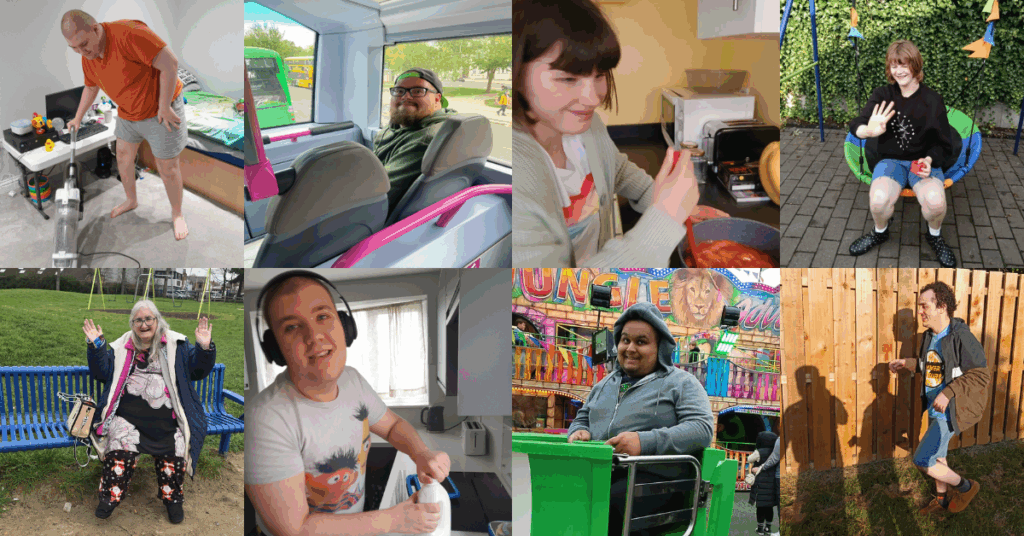Introducing Jordan Smith – iBC’s Mental Health Lead
At iBC Healthcare, we believe in challenging outdated systems and rebuilding support around what people truly need: independence, dignity, and purpose. That’s why we’re proud to introduce Jordan Smith, our new Mental Health Lead within iBC’s Therapeutic Support Team. Jordan is an experienced nurse, fierce advocate, and a values-driven leader who shares our belief that nobody should live in hospital just because there’s nowhere else for them to go.

A Career Built on Compassion and Realism
Jordan brings nearly two decades of experience across mental health, forensic, community, and residential services. From starting as a support worker in 2008 to becoming a registered nurse and managing complex services, Jordan’s professional journey has always been driven by his desire to empower people to live full, meaningful lives.
“Supporting people to be the best version of themselves – that’s what it’s all about. Everyone needs purpose. Without it, you lose yourself.”
Jordan has worked with some of the UK’s most complex individuals, particularly those with personality disorders, histories of trauma, and challenging behaviours. His previous roles span local authorities, other well established specialist providers and the NHS, including one of the UK’s high-security psychiatric hospitals. Jordan has a 360-degree understanding of the systemic challenges people face and the importance of getting support right.
In Jordan’s career so far, he’s worked with:
- Forensic and secure services
- Community-based outreach
- Inpatient services – including locked rehabilitation and psychiatric acute wards
- Individuals with varying mental disorders, learning disabilities and autism.
- People with co-occurring needs: trauma, addiction and psychosis
So why iBC?
“I’ve worked in hospitals where people were institutionalised and stuck in the system – it doesn’t sit right with me. I wanted to be part of something that actually helps people move forward. iBC’s approach of supporting people in functional, personalised environments in the community-aligns completely with what I believe.”
Jordan sees his role as a catalyst, shaping how iBC supports people with complex mental health needs, strengthening our response to referrals, and embedding therapeutic practice into our residential, supported living and core-and-cluster models.
“This role gives me a chance to use everything I’ve learned to build something meaningful—something preventative, empowering and long-term.”

Challenging Institutionalisation, Together
Jordan is passionate about iBC’s vision to challenge process. He shares our frustration with a system that too often keeps people in hospital simply because there’s no alternative, despite them having capacity, potential, and the right to a life outside of clinical walls.
“We talk about recovery, but we don’t always mean it. People become dependent on the very system that’s supposed to help them leave.”
He’s witnessed first-hand how delayed discharges and lack of community provision can destroy hope and derail recovery.
“It’s not just frustrating—it’s traumatic. People who are ready to move on end up regressing, self-harming, or sabotaging their own discharges out of fear. That fear comes from being unprepared for life outside because they’ve been in hospital so long.”
“We’ve created a system that at times makes people institutionalised—and then blames them for it.”
Jordan’s arrival comes at a pivotal moment, as we expand our hub-and-spoke and core-and-cluster models, offering community-based, functional support that’s creative, responsive, and recovery-focused.
A message for commissioners, decision-makers, and system leaders:
“If someone is ready for discharge. Don’t wait. That delay could be the difference between recovery and relapse—or worse.”
Plans, Purpose and Insight
Jordan brings more than clinical experience, he brings ideas. In future, he hopes to expand therapeutic input across iBC, including:
- Direct psychological interventions, including EMDR and trauma-informed therapies.
- Exploring prescribing qualifications to allow real-time clinical response to challenges.
- Supporting people to access meaningful employment, not just ‘keep-busy’ activities.
- Helping staff feel confident and skilled in supporting complex emotional needs.
He’s also a strong advocate for positive risk-taking, believing people should be supported to explore relationships, hobbies, responsibilities, and decision-making safely.
What’s Next?
Jordan is already connecting with teams across iBC, meeting people we support (even individuals he has supported before!), enhancing the assessment process, and building therapeutic strategies. As we grow our mental health and forensic offer, his knowledge, drive and humanity will play a central role.
He’ll be working closely with colleagues across services to embed good mental health practice, advocate for timely transitions, and shape the future of therapeutic support within iBC.
- Embedding therapeutic thinking across all services
- Developing new support pathways for people with primary mental health diagnoses
- Supporting packages involving forensic history and high emotional need
- Creating tools, training and strategies to reduce restrictive practices
- Working directly with people we support to reignite belief in their potential
“I’m not afraid of complexity. I’m interested in it. Behind every behaviour is a story. Our job is to understand it, not contain it. I want to be useful, hands-on, and make sure we don’t just talk about recovery—we live it.”
Welcome to iBC, Jordan. We’re thrilled to have you.
referrals@ibchealthcare.co.uk
info@ibchealthcare.co.uk